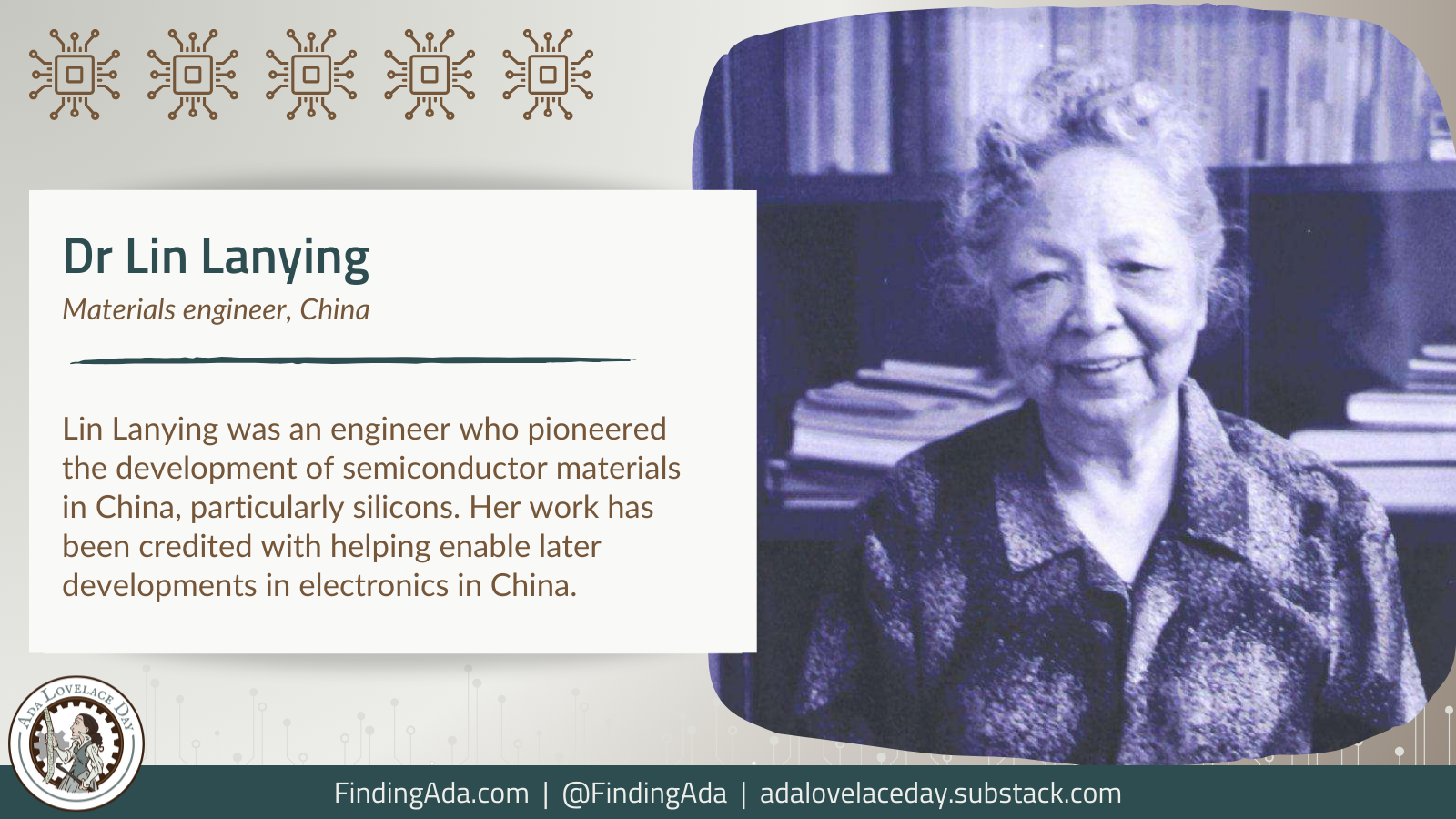
Dr Lin Lanying
Described as “the mother of semiconductor materials” in China, Dr Lin Lanying, 林兰英, was an engineer and physicist who contributed to the development of semiconductor and aerospace materials, particularly silicon. She is credited with developing the first monocrystalline silicon in China, a key semiconductor used as a component in virtually all modern electronic equipment to this day.
Lin was born on 7 February 1918 in Fujian, southeastern China. She graduated from Fukien Christian University in Fuzhou with a bachelor’s degree in physics aged 22 before moving to the United States, having been awarded a scholarship to attend Dickinson College in Pennsylvania. In 1931 she gained another bachelor’s degree in mathematics, followed by a doctorate in solid state physics from the University of Pennsylvania in 1955.
After finishing her studies, Lin was hired as an engineer at Sylvania Electric Products, a US manufacturer of equipment including semiconductors (crystalline materials that can serve as foundations for electronic devices such as computers). In 1957, she made the decision to return to China, despite attempts by FBI agents to persuade her to remain in the US due to hostility between the two countries.
Once back in her home country, Lin became a researcher at the Institute of Physics at the Chinese Academy of Sciences (CAS), before taking on a position at CAS’s Institute of Semiconductors, where she would spend the rest of her life as a scientist. At the Institute of Semiconductors, Lin spearheaded the development of several aerospace and semiconductor materials that had not yet been used in China, including monocrystalline silicon, gallium arsenide and germanium.
This foundational work has been credited with contributing to later breakthroughs in microelectronics and optoelectronics in China, including the invention of transistor radios. Lin is also believed to have built China’s first furnace to extract silicon metal.
In 1980, Lin was elected as an academician of the Chinese Academy of Sciences, becoming honorary director of the Chinese Institute of Electronics eight years later. She died on 4 March 2003, aged 85.
Further Reading
- Lin Lanying, Wikipedia
- Giants in History – Asia’s Women in Science, Asia Research News
- Telegram From Ambassador U. Alexis Johnson to the Department of State, Office of the Historian, 15 May 1957
Written by Moya Crockett, with thanks to Stylist for their support.